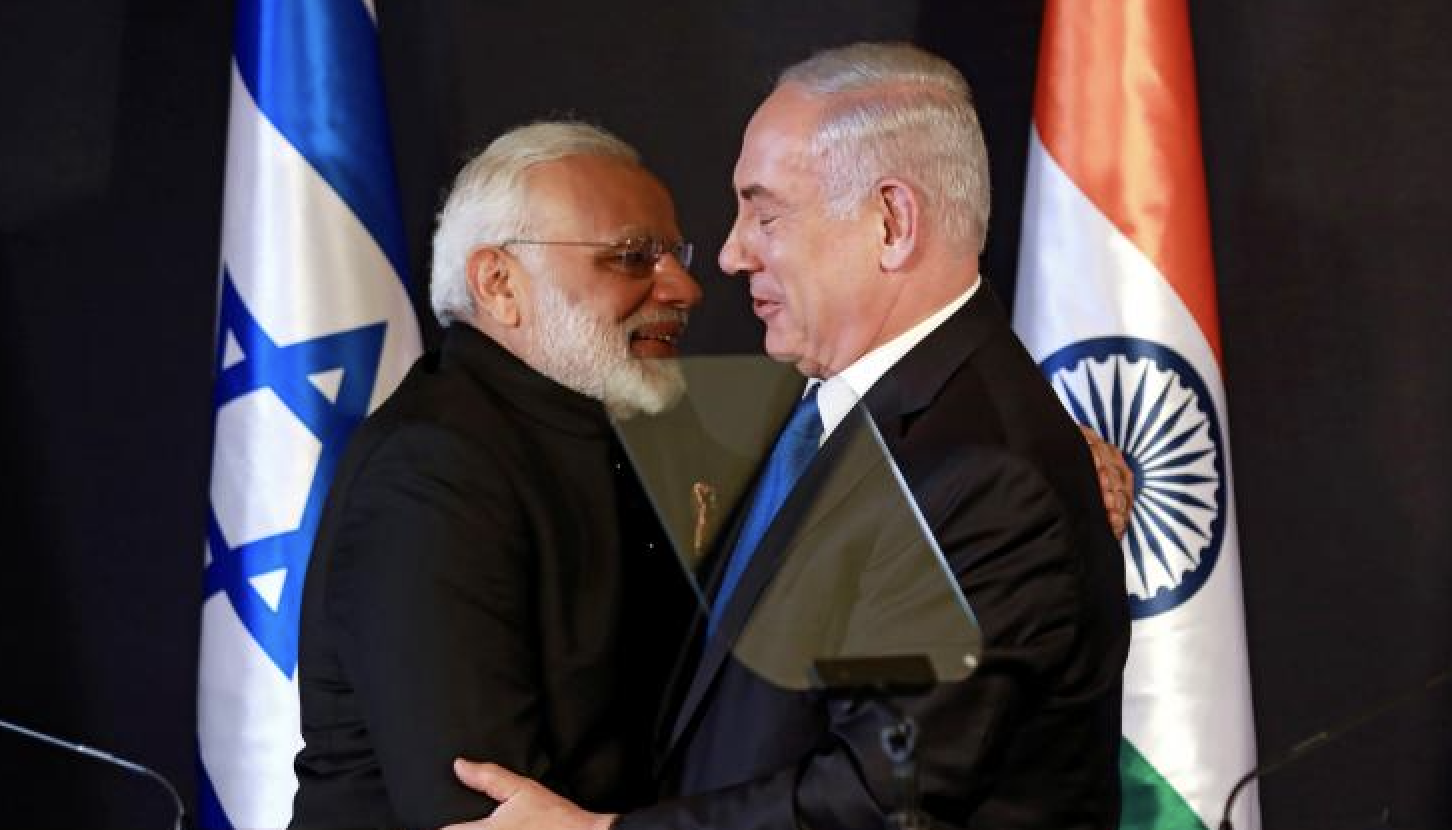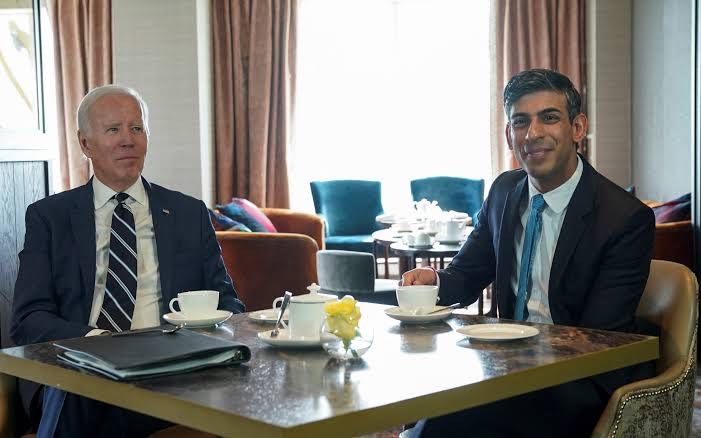The paradoxes of US aid in Gaza

US President Joe Biden's much-lauded State of the Union address on March 7, and his heart-filled dialogue for Gaza, was tainted with too many paradoxes for Palestinians to believe his words sincerely. During his big speech, the US President said that "saving innocent lives has to be a priority." He announced the plan for a new floating pier off Gaza to bring in food and supplies on ships via Cyprus. Pentagon officials have noted that the creation of such a port would require at least 60 days—so it's safe to assume that this aid won't help the deliberately, inhumanly starved civilians in Gaza soon. The process of "air-dropping aid" into Gaza prior to the US President's address resembled a Hollywood film derived from scenes produced during World War II. The renewed show of humanity towards Palestinians which the US is now projecting is lip service, at best.
Since the beginning of the war, the world has been more interested in providing humanitarian aid rather than stopping the war. They have justified this "war," and refrained from recognising the atrocities perpetrated by Israeli Occupying Forces endlessly carpet-bombing thousands and thousands of civilians. The innocents are seemingly collateral damage. As a result, Palestine has evolved into a testing ground for international capabilities, which over many months showed a resounding failure in providing even the bare minimum requirements for the survival of 2.5 million human beings.
Part of Israel's inhuman operation has included establishing barriers without gaps to prevent the entry of the aid that has piled up behind the border crossings. Thousands of trucks have been waiting for a signal from the hand of an Israeli soldier to enter, where the inspection takes hours, sometimes days, which led neighbouring countries Egypt and Jordan to send their aid through aircraft. The US followed suit and sent "sandwich carriers," dropping them on starving people waiting on the ground—the ground that Israel has burned with bomb-filled planes that the US sent to it. Not only is this new effort of "air-dropping" aid into Gaza theatrical, but it is ineffective, as several starved people in Gaza have been killed and injured by these boxes falling from the sky.
Unlike the previous times when he excused every bit of inhumanity from Israel, President Biden acknowledged that far too many civilians have been killed and he did note that Israel must do its part. So now, instead of the giant aircraft carriers that arrived to support Israel and protect it from the possibilities of the expansion of the war after October 7, 2023, the US has suddenly become the struggling saviour, here to protect and reduce the ruins of the genocide it has actively helped Israel wage. While delivering aid and speaking of lavish plans to save Palestinians, the US has quietly approved and delivered more than 100 military sales since October 7, along with the approved $107 million worth of tanks and $147.5 million worth of deadly munitions such as the 150mm shells which have killed Palestinians. The paradox is crystal clear.
The underlying policies and strategies in the US' new position seem to be driven less by humanitarian or charitable motivations and more by strategic objectives. The use of terms like "humanitarian crisis" makes it seem like this crisis was not created by them; that thousands of children in Gaza are starving because of some sorry situation, and not a brutal genocide unfolding in front of the world's eyes. The US president's address regarding Gaza appears to conveniently serve the purposes of public relations ahead of an election campaign.
In this new narrative, the United States has positioned itself as a seemingly powerless player—one that's keen on delivering aid but is encountering insurmountable obstacles. Faced with the impossibility of obtaining permission for the passing of even a single truck, the US opted to address the issue from the sea through a temporary port. Striving not to disrupt Israel, the aid boxes are subject to Israeli inspections, and the naval opening aligns with the parameters set by Israel before the conflict. This solution serves as a temporary lifeline for those trapped inside, resembling more of a floating city on the sea surface than an emergency port. It underscores that Israel maintains its land blockade on Gaza and retains absolute control over what enters the Strip.
The temporary port is in fact a form of US presence in the region in a post-war scenario, and in military language, it is a base for landings, though not necessarily of soldiers, tanks and cannons. And if we recognise the fact that it is a joint war for the sole purpose of "exterminating Hamas," with its immediate goal being to end its rule and destroy all its weapons, everything that will come after the war and beyond will be jointly coordinated with the Israelis and its allies such as the US. The US is perceived not only as a mediator for truce and negotiations but as the overarching architect of influence in the region and globally.
We, Palestinians, actively seek the retreat of US forces from the conflict, especially since it is a key player in orchestrating efforts to end Hamas' rule in Gaza and annihilate Palestinians. The US, which talks about the post-war scenario more than it talks about the war itself, does not need to send troops to Gaza, especially since Israeli soldiers or dual nationals are enough.
The existing US bases throughout the Middle East require strategic reinforcement in light of the rising security risks in the region, and Gaza is seen as a crucial addition in line with the understanding that the influence of nations, particularly major ones, transcends boundaries. Whether termed occupation, aggression, or conspiracy, these designations are merely distinctions, with their essence boiling down to the pursuit of influence. So, how can we tackle this? This is the most important question. The answer is in the hands of those carrying weapons on the ground, not in the hands of diplomats or journalists.
His Excellency Yousef SY Ramadan is Palestinian Ambassador to Bangladesh.
We welcome your contributions and analysis of global events. To submit articles to our weekly page, Geopolitical Insights, please send an email to ramisa@thedailystar.net
Follow The Daily Star Opinion on Facebook for the latest opinions, commentaries and analyses by experts and professionals. To contribute your article or letter to The Daily Star Opinion, see our guidelines for submission.




 For all latest news, follow The Daily Star's Google News channel.
For all latest news, follow The Daily Star's Google News channel. 

Comments